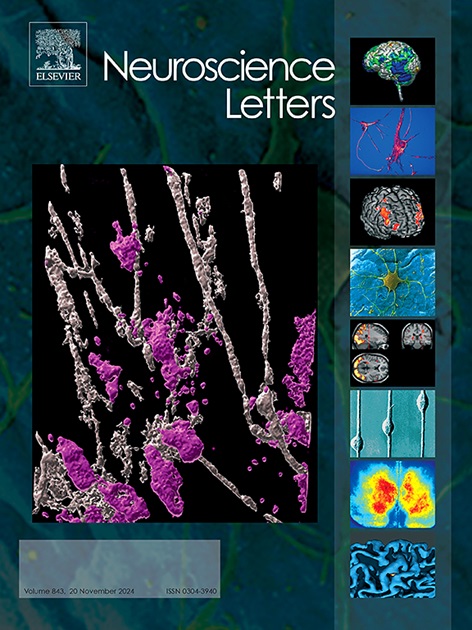VIP and PACAP enhance hippocampal neuronal cell proliferation especially GFAP-positive astrocytes, while PACAP inhibits neurite outgrowth
IF 2.5
4区 医学
Q3 NEUROSCIENCES
引用次数: 0
Abstract
Despite their known roles in regulating food intake, appetite, satiety, and social behavior, the roles of vasoactive intestinal peptide (VIP) and pituitary adenylate cyclase-activating polypeptide (PACAP) in hippocampal neuronal cell development remain unclear. Therefore, the aim was to evaluate the effect of VIP and PACAP on 1) the proliferation of a hippocampal cell line, 2) the number of neurons and astrocytes in primary hippocampal cell culture, and 3) the morphology of primary hippocampal neurons. It was found that both VIP (100 nM) and PACAP (100 nM) stimulated the proliferation of E2 hippocampal cells over a 72-hour period. A significant increase in the number of NeuN-positive primary hippocampal neurons was observed following VIP incubation on day in vitro (DIV) 9. An increase in GFAP-positive cells following PACAP incubation was observed from DIV3 compared to DIV5, DIV7, and DIV9. PACAP significantly inhibited the growth of short neurites in primary hippocampal neurons. In conclusion, this study demonstrates that both neuropeptides VIP and PACAP influence the proliferation and growth of hippocampal neuronal cells, with PACAP having a more pronounced effect on astrocyte numbers and reducing neurite branching. These findings emphasize the role of VIP and PACAP in the hippocampus during early brain development.

VIP和PACAP促进海马神经元细胞的增殖,尤其是gap阳性星形胶质细胞的增殖,而PACAP抑制神经突的生长。
血管活性肠肽(VIP)和垂体腺苷酸环化酶激活多肽(PACAP)在海马神经元细胞发育中的作用尚不清楚,尽管它们在调节食物摄入、食欲、饱腹感和社会行为方面发挥着重要作用。因此,本实验旨在探讨VIP和PACAP对1)海马细胞系增殖、2)海马原代细胞培养中神经元和星形胶质细胞数量以及3)海马原代神经元形态的影响。发现VIP(100 nM)和PACAP(100 nM)在72小时内均能刺激E2海马细胞的增殖。VIP体外培养第9天(DIV)后,观察到neun阳性海马原代神经元数量显著增加。与DIV5、DIV7和DIV9相比,PACAP孵育后DIV3的gfap阳性细胞增加。PACAP显著抑制海马原代神经元短突的生长。综上所述,本研究表明神经肽VIP和PACAP均影响海马神经元细胞的增殖和生长,其中PACAP对星形胶质细胞数量和减少神经突分支的作用更为明显。这些发现强调了VIP和PACAP在早期大脑发育过程中海马体中的作用。
本文章由计算机程序翻译,如有差异,请以英文原文为准。
求助全文
约1分钟内获得全文
求助全文
来源期刊

Neuroscience Letters
医学-神经科学
CiteScore
5.20
自引率
0.00%
发文量
408
审稿时长
50 days
期刊介绍:
Neuroscience Letters is devoted to the rapid publication of short, high-quality papers of interest to the broad community of neuroscientists. Only papers which will make a significant addition to the literature in the field will be published. Papers in all areas of neuroscience - molecular, cellular, developmental, systems, behavioral and cognitive, as well as computational - will be considered for publication. Submission of laboratory investigations that shed light on disease mechanisms is encouraged. Special Issues, edited by Guest Editors to cover new and rapidly-moving areas, will include invited mini-reviews. Occasional mini-reviews in especially timely areas will be considered for publication, without invitation, outside of Special Issues; these un-solicited mini-reviews can be submitted without invitation but must be of very high quality. Clinical studies will also be published if they provide new information about organization or actions of the nervous system, or provide new insights into the neurobiology of disease. NSL does not publish case reports.
 求助内容:
求助内容: 应助结果提醒方式:
应助结果提醒方式:


